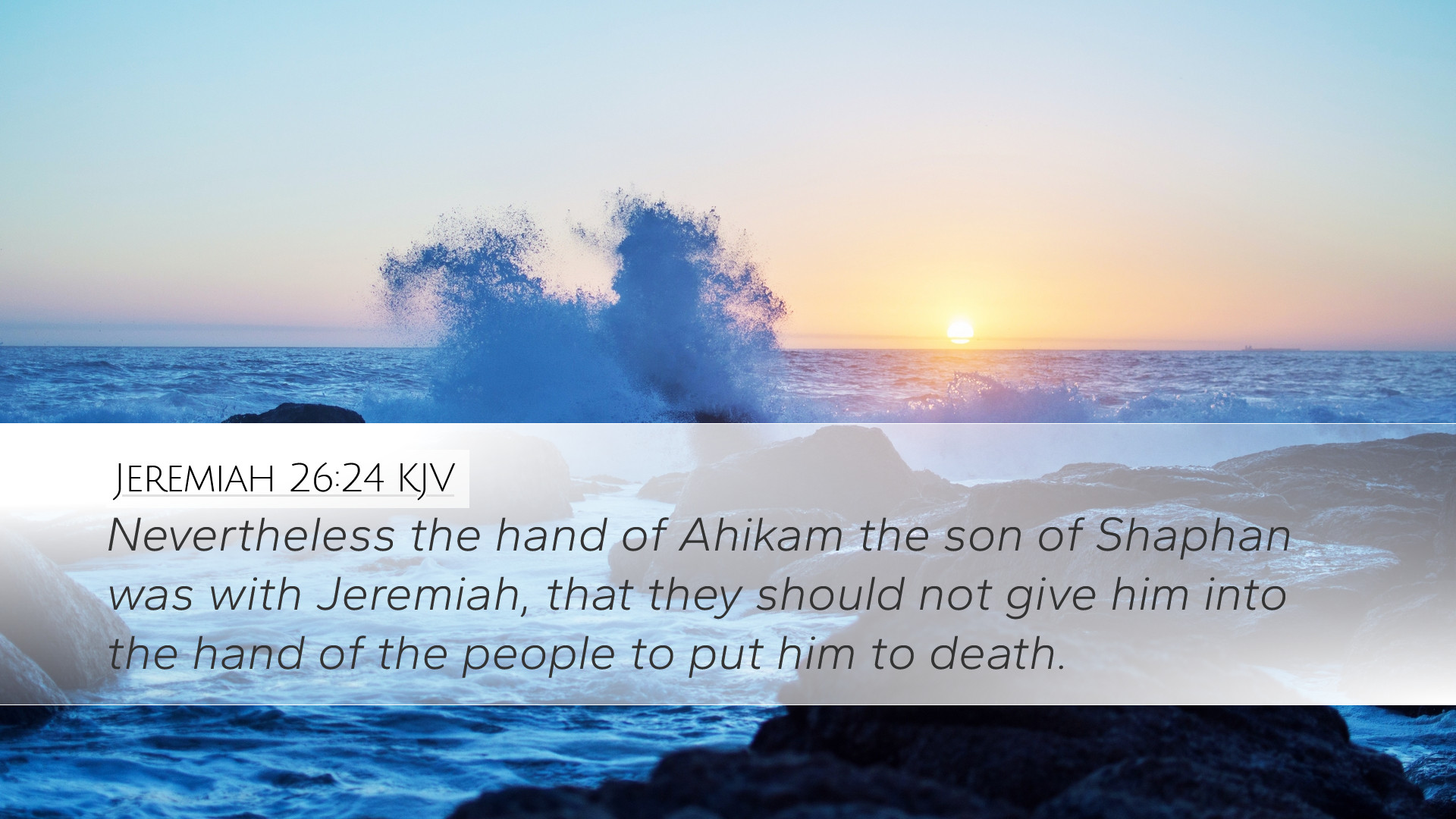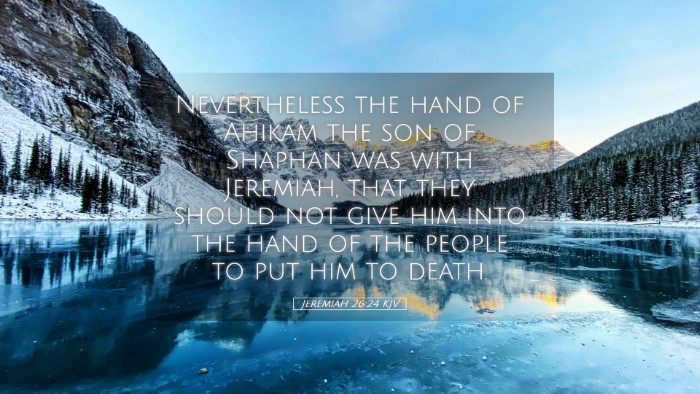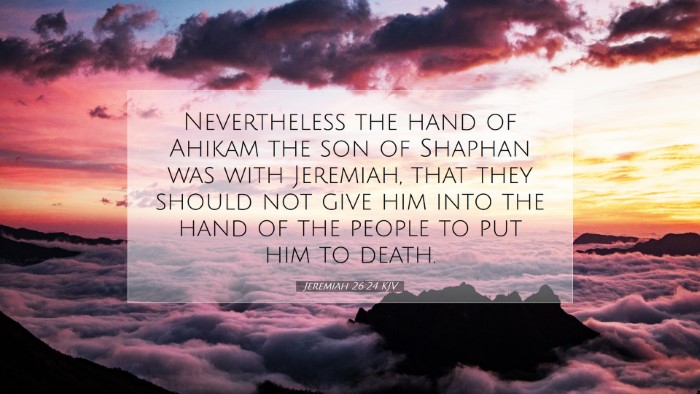Commentary on Jeremiah 26:24
Verse Context: Jeremiah 26:24 states, "Nevertheless, Ahikam the son of Shaphan was with Jeremiah, that they should not give him into the hand of the people to put him to death." This verse serves as a pivotal moment in the narrative of Jeremiah's prophetic ministry, illustrating the protection extended to him amidst danger.
Overview of Commentary Insights
This passage captures the essence of divine preservation and human intervention against adversity. It highlights the role of Ahikam and others who sought to defend Jeremiah, thereby serving as a glimpse into God’s sovereignty and protection over His prophets. Various public domain commentators have provided valuable insights into this verse.
Matthew Henry's Commentary
Matthew Henry emphasizes the significance of God's providence in ensuring Jeremiah's safety. According to Henry, "Ahikam the son of Shaphan acted nobly, and it is a remarkable instance of the divine favor to the prophet." He explains that Ahikam, having a personal understanding of the truth of Jeremiah's mission, opposed the assembly's decision to harm him.
The Role of Ahikam: Henry calls attention to Ahikam's influence, noting that he "interposed in favor of Jeremiah" and that his position granted him the capacity to avert a miscarriage of justice. It is a profound reminder that God often uses individuals to facilitate His will and protect His messengers.
Albert Barnes' Commentary
Albert Barnes elaborates on the historical context surrounding Jeremiah's ministry and the risks he faced. He asserts that "the public sentiment was against Jeremiah, and thus the danger was imminent." Yet, Barnes points out that Ahikam's involvement was crucial for Jeremiah’s survival, demonstrating how "God uses specific individuals to fulfill His divine plans."
Theological Implications: Barnes indicates that the episode illustrates the persistent opposition that prophets of God often encounter. He remarks on "the necessity of having protectors even among the odds that might seem overwhelmingly against the truth." This aspect is vital for understanding the dynamics of prophetic ministry and the societal pressures that often arise against God’s messengers.
Adam Clarke's Commentary
Adam Clarke provides a detailed exposition on the significance of Ahikam’s role. He notes that "Ahikam’s courage is commendable; he stood as a defense against an irrational mob." Clarke highlights the historical implications of Ahikam's actions, suggesting that his lineage provided him with the status needed to advocate for Jeremiah effectively.
Divine Sovereignty and Human Agency: Clarke emphasizes the point that while Jeremiah faced severe opposition, God’s hand was upon him, using Ahikam as a tool for his deliverance. This underscores the blended role of divine sovereignty in the affairs of men, directing circumstances for His prophets' protection.
Application for Pastors and Theologians
For pastors and scholars, Jeremiah 26:24 serves as a reminder of the importance of solidarity among believers, particularly in defending the truth against hostility. The example of Ahikam is particularly striking; it teaches that standing for God's messengers is part of the Christian call.
Lessons:
- Protection of the Gospel: Just as Ahikam protected Jeremiah, modern believers are called to uphold and defend the core tenets of the faith.
- Encouragement in Opposition: This passage encourages those who minister and preach, reminding them that they may also have supporters who will stand for truth in difficult times.
- The Power of Influence: Ahikam’s influence shows the potential impact one person can have when they choose to support those who are oppressed for the sake of truth.
Conclusion
In conclusion, Jeremiah 26:24 is a remarkable testament to the intricate workings of God’s providence and the human responses that align with divine purposes. The insights from Matthew Henry, Albert Barnes, and Adam Clarke collectively emphasize the importance of intercessory support in the face of adversity. For contemporary believers, pastors, and scholars, this narrative serves as an encouragement to stand firm in truth and to support one another in faith, ultimately trusting in God’s overarching plan for justice and protection.


